Written by Michael McArthur
Photography by Dan Austin
For Lakeland-based, Grammy-nominated musician, David “Jah D” Goldfine, Reggae music isn’t just his career it’s a lifestyle.
To understand the eminence of reggae, you must first recognize the impact it has had on our collective global music culture. In 1960s’ Jamaica, a tropical island of fewer than 2 million people, flora rise like sails, and the Blue Mountains provide an immovable anchor. This is where reggae was born. It was Toots and The Maytals “Do the Reggay” that would first introduce Jamaica’s export of exports to an international audience, popularizing the genre. Then, of course, there’s reggae’s patron saint, Bob Marley. We know it the moment we hear it, and that’s because of the directly distinct counterpoint between the downbeat drum and bass, and the offbeat rhythm section. It’s a musical expression that, no matter where you are in the world, carries you away to a salty sea, allspice trees, and summer breeze.
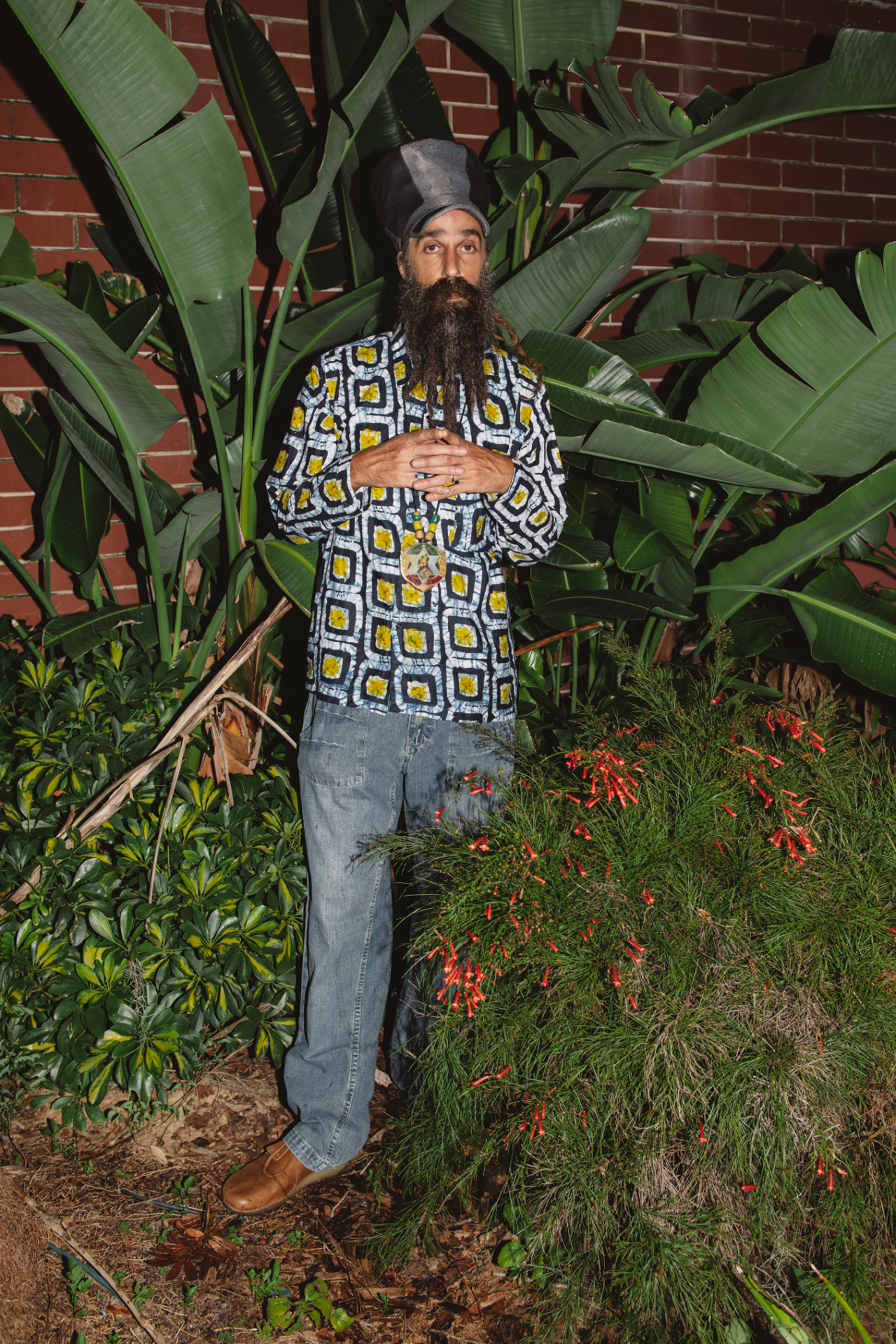
If drums are the beating heart of reggae, then bass is the blood that runs through it. That’s where Lakeland’s Grammy-nominated producer, songwriter, and bass player David “Jah D” Goldfine can be found.
The Lakelander: Tell me a little bit about the origin of reggae music in your life.
Jah D: I found reggae at an early age, seven or eight years old. My older brother loved Bob Marley, and I’ve always been heavy into music, searching for something new. There are two things I remember from that time in my life. I remember going to the public library in my hometown of Providence, Rhode Island, and renting a Reggae Sunsplash VHS. I was drawn to it by the Rastaman on the cover. In that video, I saw a bunch of different reggae artists and Bob was among them. I also remember my brother getting the Bob Marley box set Songs of Freedom. That was when I really started getting into Bob. Before then, I heard Marley on classic rock stations without the knowledge of him being reggae. They would play his songs between Zeppelin and Journey. So, in my mind at the time, it was rock. I’d eventually make the distinction.
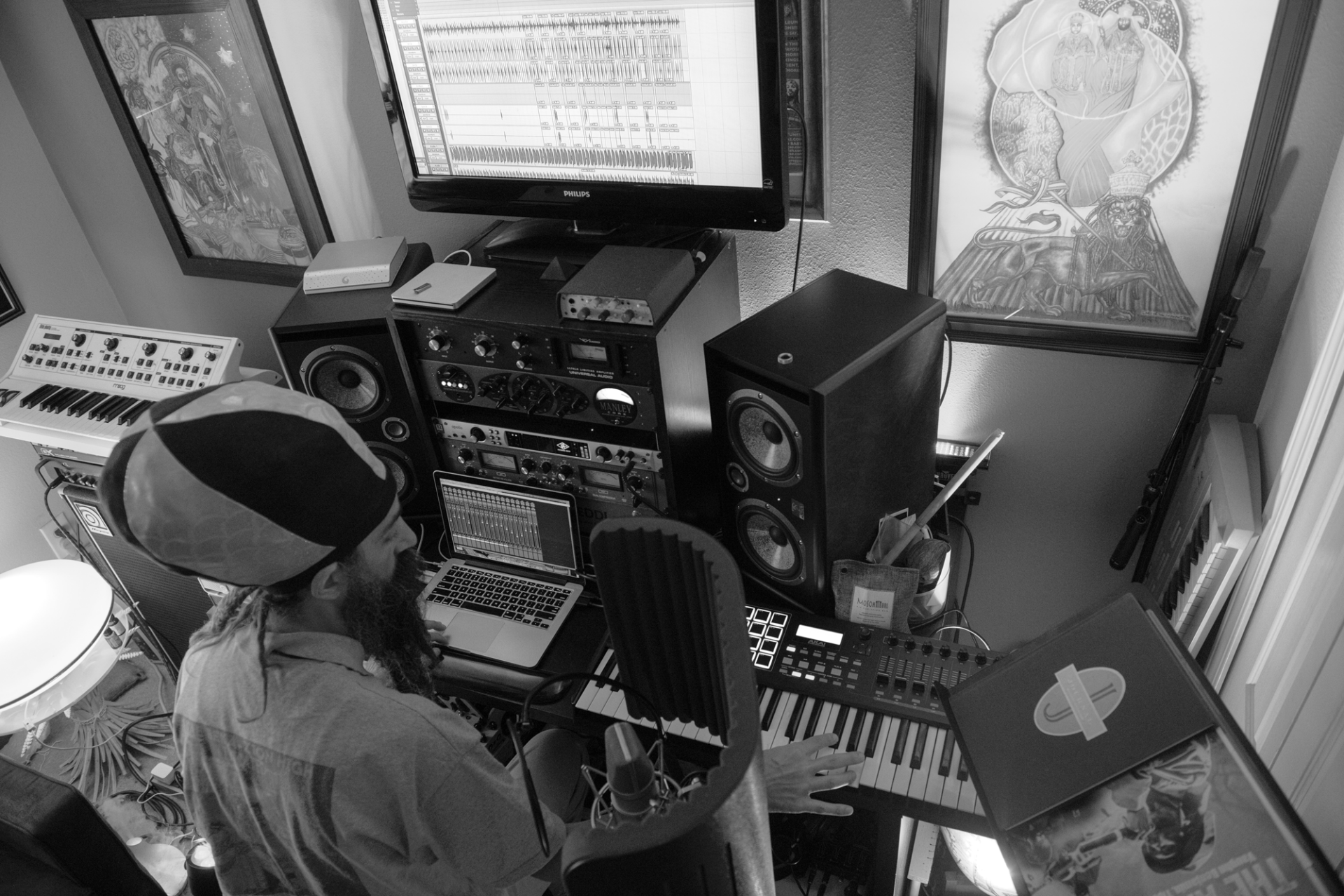
Goldfine works from his home studio , producing for artists from all over.
TL: Did you begin playing music in Rhode Island?
Jah D: Yes, I started violin in third grade and played for a couple of years. Then I begged my parents for a guitar which I played the rest of the way through high school. Reggae would ultimately overtake me, so I stopped listening to everything else and focused heavily on reggae music, all the way to the point where I put the guitar down because the bass lines were speaking to me. I was listening to dub music, hearing the bass, and connected so easily to it. So, I grew up playing guitar in rock bands and was proficient, but once I found the bass, I realized that it could be my thing, my true comfort zone. And it is.
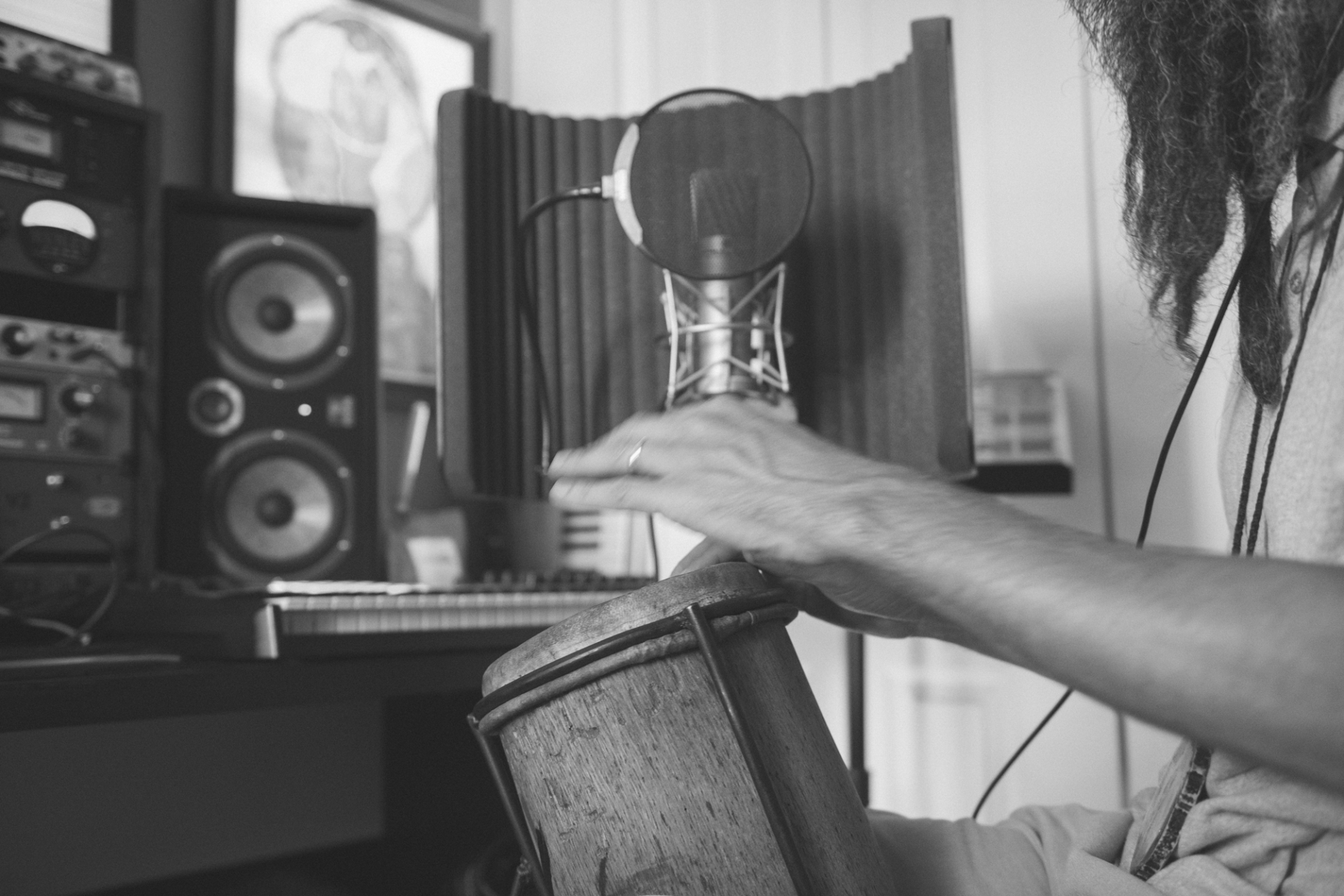
TL: What is it about the bass that connects you so deeply to it?
Jah D: It’s the way it joins the drums to the rhythm and melodic sections. I’m fixated on drums and percussion, the foundation of music, and having a background in stringed instruments and chords, I find it’s a very good place to be. Fully married to the drummer and being the bridge to everyone else.
“I was never of the mind to sit around and wait for someone to call. I took it upon myself to create art no matter what.”
TL: Let’s talk a little bit about how you became a prominent reggae songwriter and producer.
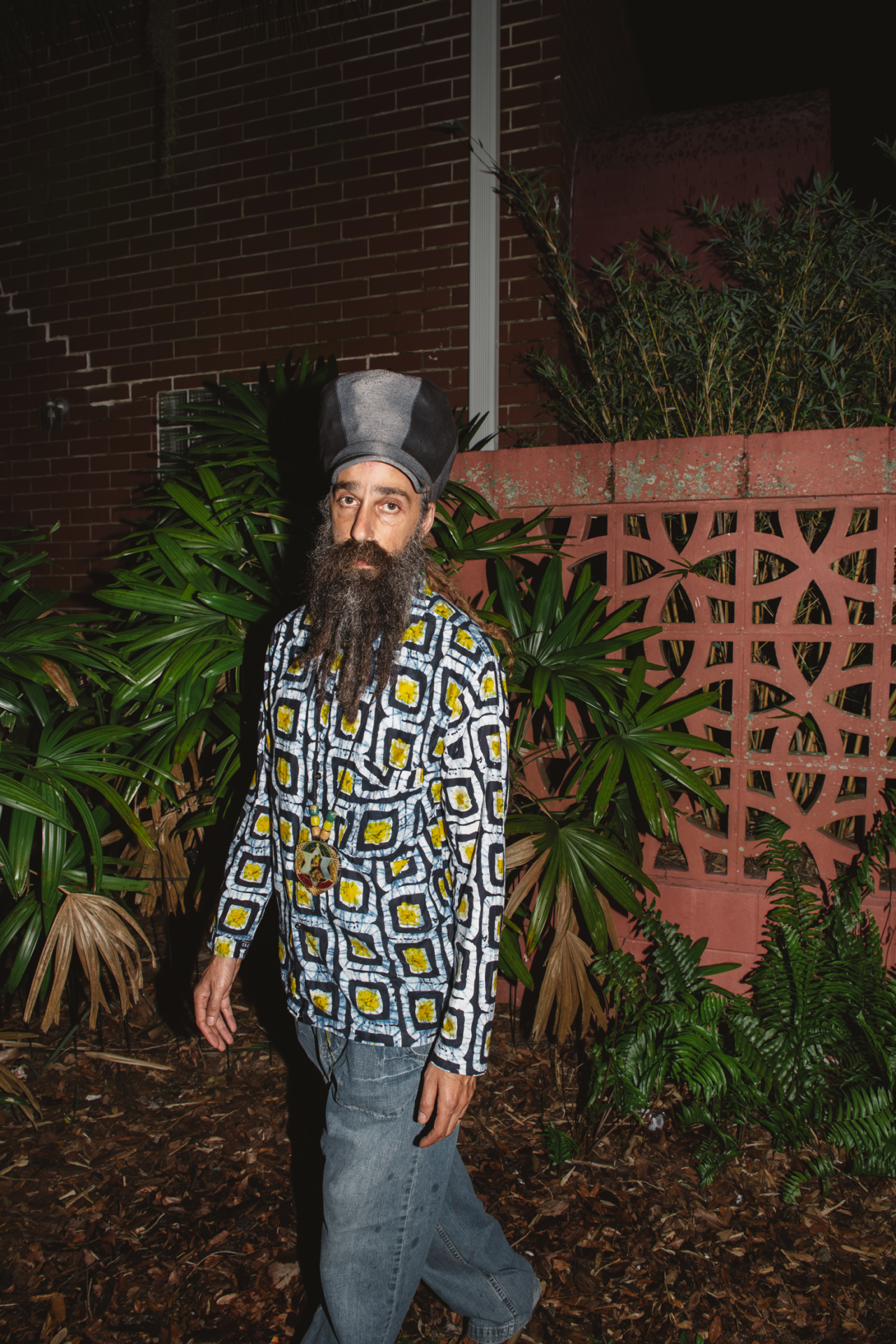
Jah D: I formed the record label, Zion High Productions, with two partners, Ras Elliott and Quashi in California in 2002. Before that, I had been writing a little on my MPC and had recorded some bass lines here and there for a few people. The label was really a continuation of what I had always done, which is to facilitate works that include me musically. I was never of the mind to sit around and wait for someone to call. I took it upon myself to create art no matter what. The label was formed for that reason. It was a way to release music that I produced. From there, I helped form the production team, Zion I Kings, with Laurent “Tippy I” Alfred and Andrew “Moon” Bain. Over the years, I’ve released 25 albums on Zion High Productions and have either played on or produced more than 180 albums.
TL: What have been a few career-defining moments for you?
Jah D: One of the first sessions I did was with a schoolmate of mine and the famous drummer Carlton “Santa” Davis. When I walked out of the studio, I got in my car and played what we just recorded. Having been a music lover and avid listener my whole life, when I heard it, I came to grips with it, and it was good. I knew then that this road was meant for me. I’m exactly where I’m supposed to be, doing exactly what I’m supposed to do. I was 21 years old then.
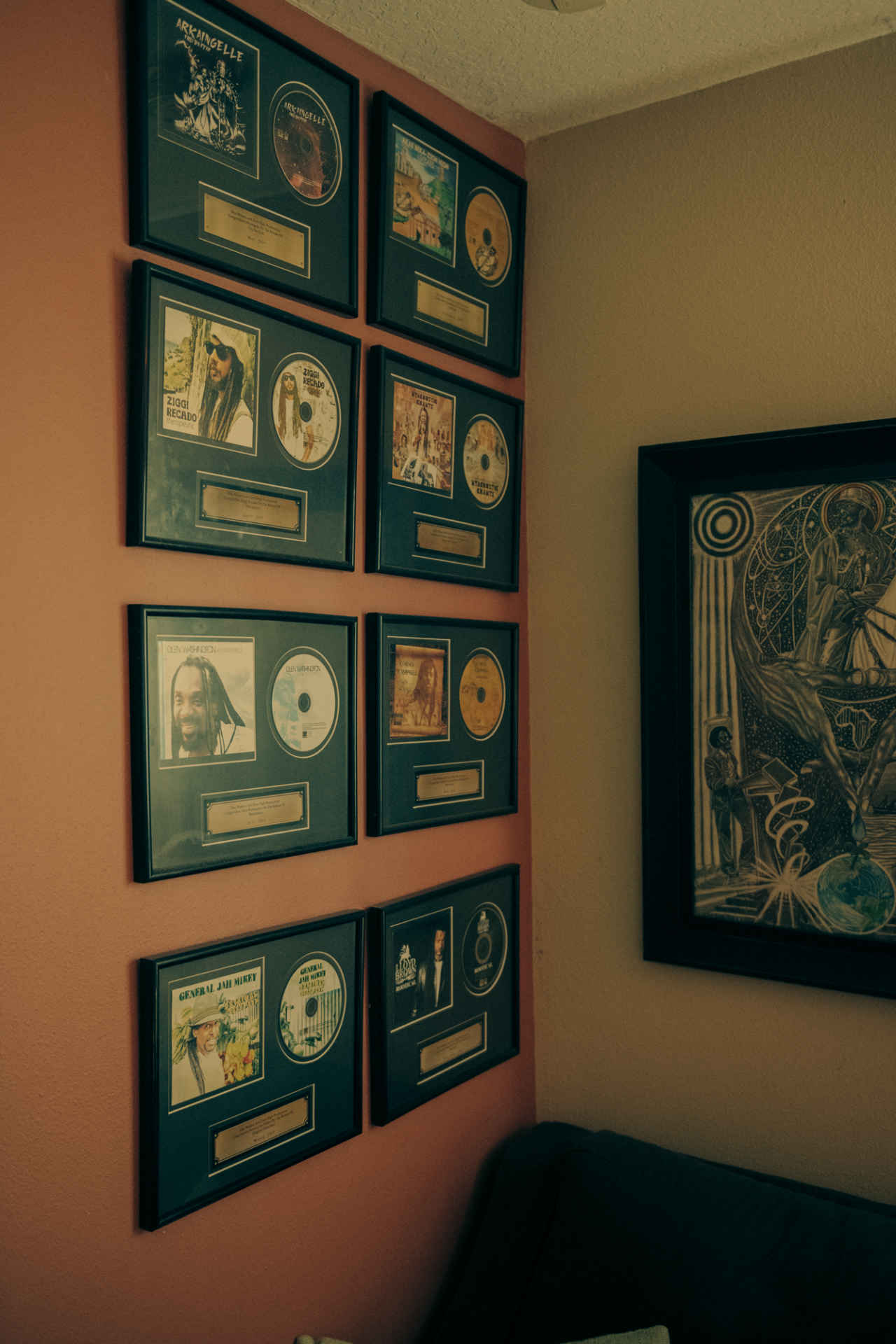
For Zion High Production inquiries, contact David at zionhigh@gmail.com.
Another moment is that I would eventually play Reggae Sumfest which is Reggae Sunsplash. That was big for me having begun my journey watching that VHS I rented when I was eight years old from the public library. And even bigger as an American musician being invited to Jamaica to play with a Jamaican artist. Her name is Jah 9. We’ve done extensive touring together and have even played Damian Marley’s Jamrock Reggae Cruise. That was really something.
I was nominated for a Grammy as a songwriter for Snoop Dogg’s reggae project, Snoop Lion. It happened randomly. My partner in Zion I Kings, “Moon,” works with Jahdan Blakkamoore who knows Diplo from Major Lazer. “Moon” and Jahdan got hired to work on Snoop Lion’s project and went down to Jamaica and played one of our compositions for Snoop, which he loved. It ended up being used for the album. The song is called “So Long,” and Stewart Copeland of The Police played drums on it.
Lastly, I was interviewed and featured in Bass Player magazine which was a big deal for me, especially being a reggae bassist.
“2020 forced me to stop moving and be still, and in the process it has helped me enjoy being still.”
TL: How did last year change things for you, and how do you imagine that they’ll continue to change?
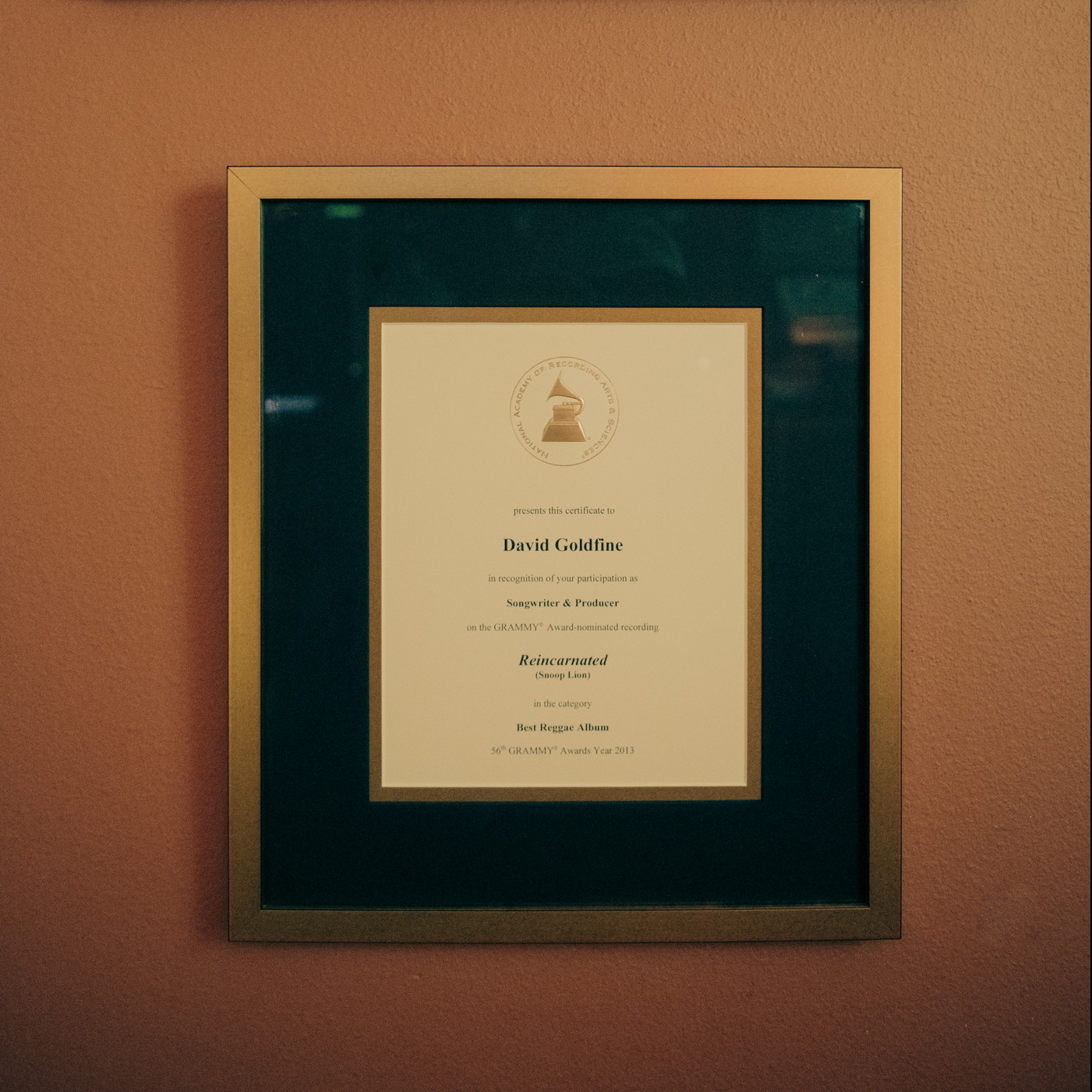
Jah D: As far as the second part of the question goes, I’m happy to say that I don’t know. But I will say that the previous year has changed my outlook on traveling. As much as I love to travel, 2020 forced me to stop moving and be still, and in the process, it has helped me enjoy being still. I’ve been much more productive in writing and producing. I used to travel for shows six months out of every year and at this point have been home for nearly two years. I’ve enjoyed being home. I’m not in a rush to run out anywhere. I met my wife in South Florida in 2007, and we moved to Lakeland in 2008. We’re looking for another place now. A place where we can have a garden and a small farm to grow our food. I’ve learned that my ideal situation is to write, produce, and be home with my family. I love being home, being around town, and the weather and nature that Lakeland has to offer.
